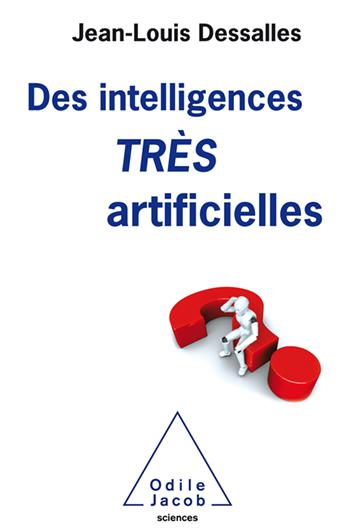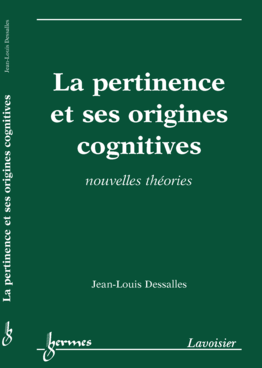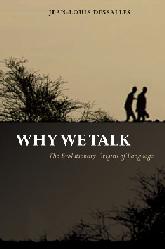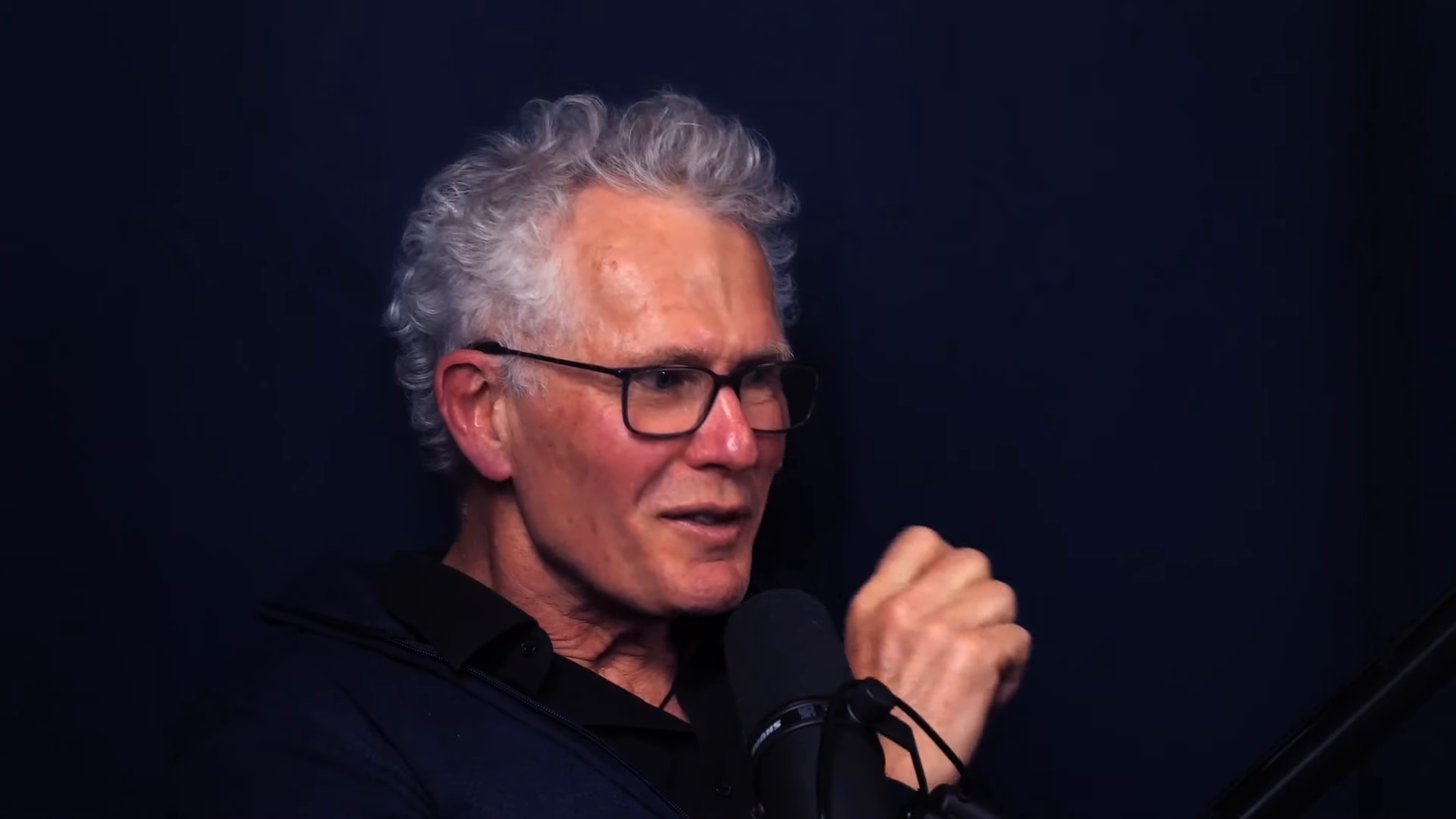Jean-louis Dessalles - Publications [See all papers] - [Selected Papers] - [Talks]
See also Books:







 Topics
Topics
 Social signals
Social signals
Evolutionary origins of language
Evolution and information
Simplicity Theory
Cognitive modelling of interest
Cognitive modelling of relevance
Cognitive modelling of meaning
Cognitive modelling of emotional intensity
Cognitive modelling of concept learning
Emergence as complexity drop
Qualia cannot be epiphenomenal
→ [ See all papers ] → [ Selected papers ]
Selected topic: Social signals
| Many aspects of human behavior can be explained as social signals,
i.e. signals that you send to make friends.
Examples are costly norms, heroism, conspicuous consumption and... human language. |
Regarder

|
Interview pour Omniscience podcast. |
My 10 papers about SIGNALS (but see my other papers)
-
Dessalles, J.-L. (2025). Why honor heroes? The emergence of extreme altruistic behavior as a by-product of praisers’ self-promotion. Evolution and human behavior, 46 (1), 106656.
Keywords: SIGNALS
Heroes are people who perform costly altruistic acts. Few people turn out to be heroes, but most people spontaneously honor heroes overtly by commenting, applauding, or enthusiastically celebrating their deeds. This behavior seems odd from an individual fitness optimization perspective. The best strategy should be to rely on others to invest time and effort in celebrations. To explain the universal propensity to pay tribute, we propose that public admiration is a way for admirers to signal that they are committed to the same values as the hero. We show that the emergence of heroic acts is an expected side-effect of this propensity.
→ Download PDF Share: -
Lie-Panis, J. & Dessalles, J.-L. (2023). Runaway signals: Exaggerated displays of commitment may result from second-order signaling. Journal of Theoretical Biology, 572, 111586.
Keywords: SIGNALS
To demonstrate their commitment, for instance during wartime, members of a group will sometimes all engage in the same ruinous display. Such uniform, high-cost signals are hard to reconcile with standard models of signaling. For signals to be stable, they should honestly inform their audience; yet, uniform signals are trivially uninformative. To explain this phenomenon, we design a simple model, which we call the signal runaway game. In this game, senders can express outrage at non-senders. Outrage functions as a second-order signal. By expressing outrage at non-senders, senders draw attention to their own signal, and benefit from its increased visibility. Using our model and a simulation, we show that outrage can stabilize uniform signals, and can lead signal costs to run away. Second-order signaling may explain why groups sometimes demand displays of commitment from all their members, and why these displays can entail extreme costs.
→ Download PDF Share: -
Dessalles, J.-L. (2018). Self-sacrifice as a social signal (Commentary on H. Whitehouse: Dying for the group: Towards a general theory of extreme self-sacrifice). Behavioral and Brain Sciences, 41 (e200), 20-21.
Keywords: SIGNALS
Self-sacrifice can be modeled as costly social signal carried to the ultimate extreme. Such signaling may be evolutionarily stable if social status is in part inherited.
→ Download PDF Share: -
Dessalles, J.-L. (2014). Comment nous optimisons nos signaux sociaux. La Recherche, 494, 56-59.
Keywords: SIGNALS
De nombreux comportements humains n’ont pas pour effet de procurer un bénéfice immédiat. Alors quel est leur rôle ? Attirer les amitiés, à l’image de ce que l’on peut observer dans les réseaux sociaux numériques.
→ Télécharger une version PDF de cet article Share:
→ Papier sur le site de "La Recherche" -
Dessalles, J.-L. (2014). Optimal investment in social signals. Evolution, 68 (6), 1640-1650.
Keywords: SIGNALS
This study is an attempt to determine how much individuals should invest in social communication, depending on the type of relationships they may form. Two simple models of social relationships are considered. In both models, individuals emit costly signals to advertise their "quality" as potential friends. Relationships are asymmetrical or symmetrical. In the asymmetrical condition (first model), we observe that low-quality individuals are discouraged from signaling. In the symmetrical condition (second model), all individuals invest in communication. In both models, high-quality individuals ("elite") do not compete and signal uniformly. The level of this uniform signal and the size of the “elite” turn out to be controlled by the accuracy of signals. The two models may be relevant to several aspects of animal and human social communication.
→ Download PDF Share: -
Dessalles, J.-L. (2010). Et si la coopération était un mythe ? Un pilier des sciences sociales ébranlé par la simulation. Nouvelles perspectives en sciences sociales, 5 (2), 79-89.
Keywords: SIGNALS
La coopération est l’un des piliers, voire un axiome, des sciences sociales. Elle seule permet à des individus non apparentés de vivre ensemble. Même la guerre, sorte d’autodestruction des sociétés, repose sur une coopération efficace. Et, pour prendre un exemple que je connais bien, le langage est présenté aux étudiants comme un cas emblématique de coopération, consistant en un échange d’informations. C’est pourtant à propos du langage que j’ai eu mes premiers doutes. J’ai alors tenté de m’attaquer au pilier, armé du canif des modélisateurs, la simulation.
→ Télécharger une version PDF de cet article Share: -
Dessalles, J.-L. (2008). L’altruisme, enfant de la guerre ? Cerveau & Psycho, 26, 24-28.
Keywords: SIGNALS
Homo homini lupus, l’être humain est un loup pour ses semblables. En même temps, homo sapiens est la seule espèce dont les membres rendent systématiquement des services à leurs congénères non apparentés. Les populations humaines sont-elles un mélange nécessaire où cohabitent les individus agressifs et les altruistes ? Si l’on en croit une étude récente (Choi & Bowles 2007), les agressifs et les altruistes pourraient être les mêmes personnes !
→ Télécharger une version PDF de cet article Share: -
Dessalles, J.-L. (2006). Generalised signalling: a possible solution to the paradox of language. In A. Cangelosi, A. D. M. Smith & K. Smith (Eds.), The evolution of language - Proceedings of the 6th International Conference (Evolang6), 75-82. Singapore: World Scientific.
Keywords: EVOL.&LANG. SIGNALS
The systematic and universal communicative behaviour that drives human beings to give honest information to conspecifics during long-lasting conversational episodes still represents a Darwinian paradox. Attempts to solve it by comparing conversation with a mere reciprocal cooperative information exchange is at odds with the reality of spontaneous language use. The Costly Signalling Theory has recently attracted attention as a tentative explanation of the evolutionary stability of language. Unfortunately, it makes the wrong prediction that only elite individuals would talk. I show that as far as social bonding is assortative in our species, generalised signalling through language becomes a viable strategy to attract allies.
→ Download PDF Share: -
Dessalles, J.-L. (2005). Communication among selfish agents: From cooperation to display. Proceedings of the 3rd Lake Arrowhead Conference on Human Complex Systems Los Angeles: University of California Los Angeles.
Keywords: SIGNALS
Communication of honest information is known to be fundamentally unstable in populations of selfish agents. As agents have more interest in benefiting from others’ information than in giving away their own knowledge, general muteness is the only attractor. We develop an alternative model along the lines of the general Theory of Honest Signaling. In our model, agents communicate to display their ability to get original information. -
Dessalles, J.-L. (1998). Altruism, status, and the origin of relevance. In J. R. Hurford, M. Studdert-Kennedy & C. Knight (Eds.), Approaches to the evolution of language: Social and cognitive bases, 130-147. Cambridge: Cambridge University Press.
Keywords: EVOL.&LANG. SIGNALS
We deal here with the problem of the origin of language from the point of view of pragmatics. Our aim is to show that any scenario of language origin should explain the relevance phenomenon. Why do people feel obliged to be relevant in casual conversation ? Analysing the structure of relevance leads to unexpected conclusions : relevant information is valuable, therefore language seems to be altruistic. As a consequence, from a Darwinian perspective, speakers should be rare and continually prompted for their knowledge. What we observe, however, is the exact opposite : in many situations, speakers repeatedly strive to make their point, while listeners systematically evaluate what they hear. A possible solution to this paradox is that language is not altruistic and that relevant information is traded for status. The observation of spontaneous conversation provides some evidence that supports such a hypothesis.
→ Download PDF Share: